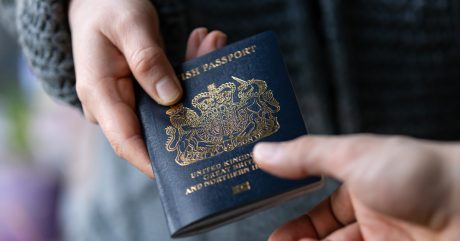In an article first published in Bloomberg Tax, partner Matthew Greene and senior paralegal Pavlos Theodoulou review the Upper Tribunal’s decision in a recent case providing guidance on the “exceptional circumstances” provision of the statutory residence test in determining UK residency status.
Most well-advised internationally mobile individuals will be aware of the various day counts that can lead to UK tax residence. Nevertheless, unforeseen emergencies can arise that may cause them to spend more than the allowed number of days in the UK.
In a recent decision in HMRC v A Taxpayer, the UK Upper Tribunal provided important guidance on how the statutory residence test in Schedule 45 of the Finance Act of 2013 should be applied in relation to the “exceptional circumstances” provision, under paragraph 22(4) of Schedule 45. This provision allows individuals to disregard certain days spent in the UK if they were prevented from leaving the UK due to exceptional circumstances beyond their control.
In the case, the Upper Tribunal overturned the First-tier Tribunal’s decision and decided that the taxpayer was a UK tax resident because there were no exceptional circumstances that prevented her from leaving the UK. As such, she was liable for over £3 million ($3.8 million) in additional tax on dividends she had received during the year in question.
Relevant Legislation
Individuals don’t pay UK income tax on foreign income unless they are UK resident. The statutory residence test provides that a person is resident in the UK for a given year if either the “automatic residence test” is met or, if not, if the “sufficient ties” test is met. The number of days spent in the UK is important in determining residency status for UK tax purposes, and if a person is present in the UK at the end of a day, that day will generally count in the calculation unless the exceptional circumstances provision applies.
Automatic residence test. The automatic residence test comprises several criteria, many of which depend on the number of days spent in the UK.
Sufficient ties test. Under the sufficient ties test, a person’s residence is determined by both the number of UK ties and the number of days the person spends in the UK.
Exceptional circumstances provision. A day can be disregarded, under paragraph 22(4) of Schedule 45, if a person wouldn’t be present in the UK at the end of that day but for “exceptional circumstances” beyond the person’s control that prevent them from leaving the UK, and that person intends to leave as soon as those circumstances permit. Paragraph 22(5) gives the example of a sudden or life-threatening illness or injury.
Background
On April 4, 2015, the taxpayer moved from the UK to the Republic of Ireland. During 2015 through 2016, her husband transferred shares to her for which she received approximately £8 million in dividends. The taxpayer completed her 2015–16 tax return on the basis that she wasn’t a resident in the UK.
During 2015, the taxpayer’s sister was suffering from alcoholism and depression. The taxpayer’s nieces were living with the taxpayer’s sister in the UK at the time. The government and taxpayer agreed that the taxpayer had been in the UK for 50 nights in the relevant year. This was five days more than the 45 days allowed under the statutory residence test. The taxpayer, therefore, had to rely on the paragraph 22(4) “exceptional circumstances” exception.
The taxpayer’s main argument at the First-tier Tribunal had been that there was a risk that her sister would commit suicide, which constituted an “exceptional circumstance,” and that the taxpayer was prevented from leaving the UK until her sister was in “a place of safety.” The First-tier Tribunal rejected this argument primarily because there was insufficient evidence.
The First-tier Tribunal however had accepted the taxpayer’s secondary case that her sister was unable to care for her own children, and the taxpayer was thus prevented from leaving the UK until appropriate care for them could be arranged.
The Upper Tribunal overturned the First-tier Tribunal’s decision on the taxpayer’s secondary case and held that the taxpayer was a UK resident.
The Upper Tribunal stressed that the statutory residence test’s exceptional circumstances provision is an objective test: The question isn’t whether the taxpayer believed, reasonably or not, that there were exceptional circumstances.
Furthermore, the exceptional circumstances must have prevented the taxpayer from leaving the UK. In this context, “prevent” means rendering something impossible, not merely hindering it. Moral obligations, such as one’s sense of duty to remain in the UK to look after family, aren’t exceptional circumstances; they are shaped by society and the individual’s subjective feelings.
So in this case the taxpayer may have been prevented from leaving the UK by her sense of moral obligation to arrange childcare for her nieces, but these weren’t exceptional circumstances, the court held.
Implications
The Upper Tribunal was conscious that this was the first case where the exceptional circumstances test under paragraph 22 had been considered, and laid down guidance on the correct approach.
First, it is necessary to consider each of the excess days spent in the UK separately, and for each day, establish that:
- The circumstances were exceptional.
- The circumstances were beyond the taxpayer’s control.
- The taxpayer wouldn’t have been present in the UK at the end of that day but for those circumstances.
- The circumstances prevented the taxpayer from leaving the UK.
- The taxpayer intended to leave the UK as soon as those circumstances permitted.
It’s then necessary to establish the changed circumstances that enabled the taxpayer to leave the UK, to help demonstrate whether the taxpayer was previously prevented from leaving the UK. In practical terms, relevant evidence could include documents such as hospital discharge papers (where illness was a factor) or revised Foreign Office guidance relating to travel arrangements (where local emergencies were a factor). If there is no documentary evidence, the taxpayer will need to rely on oral testimony from themselves and others who had direct knowledge of the relevant facts.
Retaining contemporaneous documentation is vitally important to support a claim for exceptional circumstances.
This decision has produced a somewhat harsh result in this case. Clearly, the Upper Tribunal was concerned about the implications of allowing subjective factors such as moral obligations to play a part in the exceptional circumstances test.
The case is HMRC v A Taxpayer, [2023] UKUT 182 (TCC).
You can find further information regarding our expertise, experience and team on our Tax Litigation and Resolution page.
If you require assistance from our team, please contact us.
Subscribe – In order to receive our news straight to your inbox, subscribe here. Our newsletters are sent no more than once a month.





